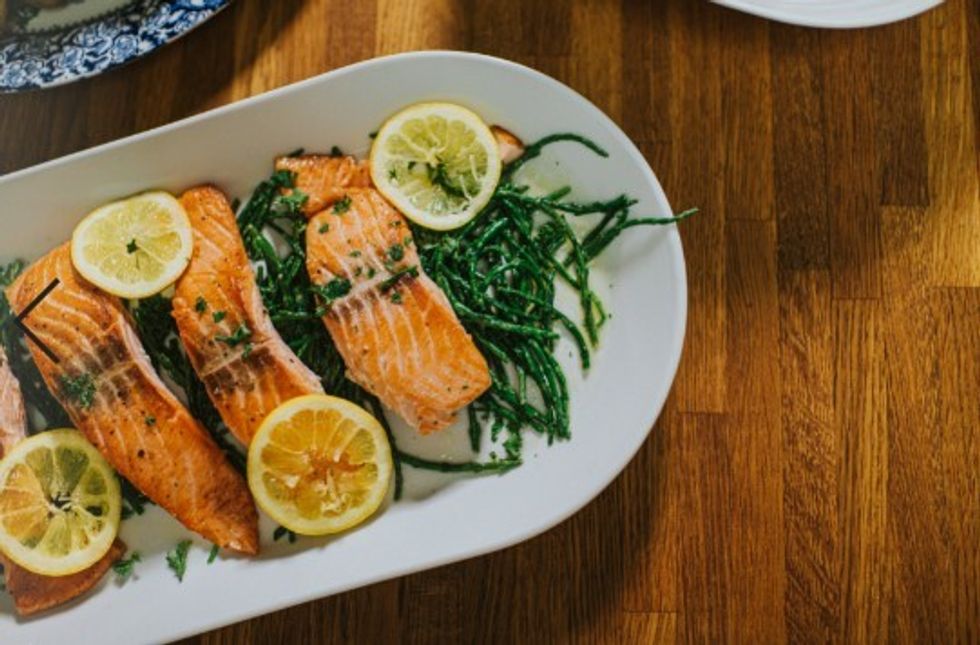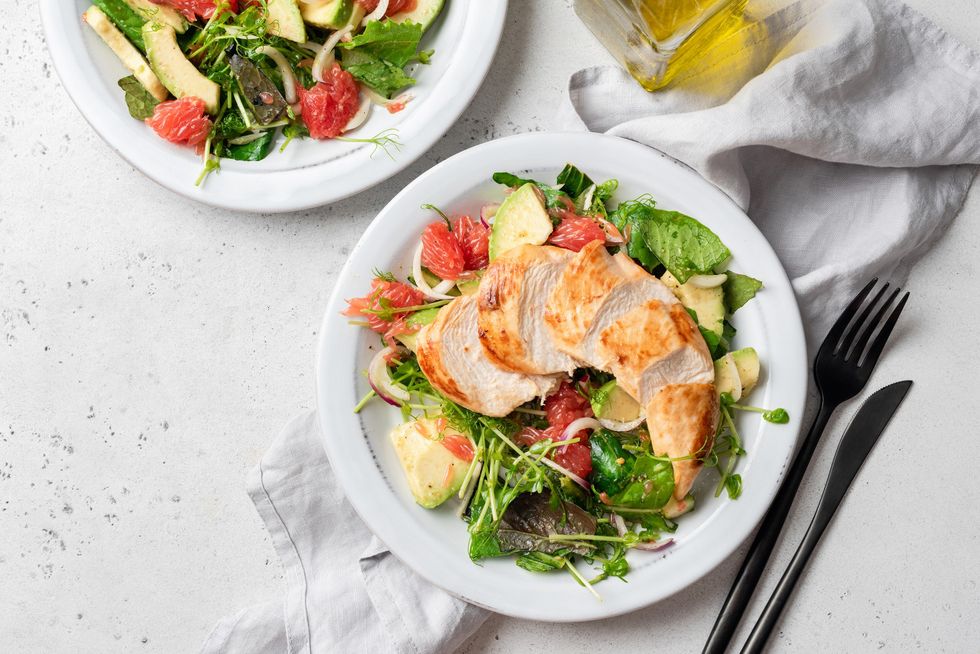Women over 40 can look '10 years younger' by consuming more of one food group

Protein will strengthen your collagen levels, making your skin firmer and less likely to wrinkle
Don't Miss
Most Read
Latest
From skin care secrets to hair hacks to makeup tricks, there are plenty of ways women can take years off their appearance.
But according to an expert, the importance of a healthy diet should not be underestimated either. A personal trainer spoke exclusively to GB News about how women can look "10 years younger" with the right diet and exercise hacks. Consuming enough protein is essential for a radiant complexion.
Alison McIndoe, who helps women over 40 transform their lives via exercise and health hacks, advised ladies to up their consumption of a particular food group. She said: "Eat a minimum of 30 grams of protein with each meal."
The British Heart Foundation said: "Most adults need around 0.75g of protein per kilogram of body weight per day." This means that someone who weighs 60 kilograms (9st 6lb) should consume around 45 grams of protein daily.

The expert advised: 'Eat a minimum of 30 grams of protein with each meal'
|GETTY IMAGES
According to the experts at Harvard Medical School, the best protein sources to include in a high-protein diet are beans, peas and lentils, nuts and seeds, lean meats, fish, dairy products and soy products.
Adding collagen to your diet can also help you reach your protein goals, revealed Alison. She said that this will also "improve your hair, skin and nails".
Foods that are high in collagen include chicken, citrus fruits, legumes, peppers, leafy greens and bone broth.
Experts at The Healthy Chef confirmed that a protein-rich diet can work wonders when it comes to anti-ageing.
Skin enthusiasts were informed: "Protein consists of 20 amino acids, two of which are called L-lysine and L-proline, which are used in the production of collagen.
"Collagen gives strength and structure to the skin but can break down as you age, leading to saggy, dehydrated skin and pronounced wrinkles.
"Including enough quality protein sources in your diet strengthens your collagen levels and therefore makes your skin firmer and less prone to wrinkles."
Consuming more protein could also be the secret to magnificent hair. The Independent Pharmacy explained that hair is primarily composed of a protein called keratin.
The experts said: "Without adequate protein intake, the hair follicles produce weaker keratin, leading to brittle, easily damaged hair.
"Protein provides the fundamental building blocks to regenerate hair cells and promote normal growth cycles."
The experts at Harvard Medical School provided a word of warning though. They said: "For the average healthy person (who is not an elite athlete or heavily involved in bodybuilding) it's probably best to keep total protein intake to no more than two grams per kilogram of ideal body weight. That would be about 125 grams per day for a 140 lb person (10st) with a normal body mass index (BMI).
To knock a decade off your appearance, Alison also suggested getting more exercise, advising women to strength train three times per week.
The expert said: "Using some light dumbbells at home for 15 minutes three times per week will add and maintain lean muscle mass which will help you look and feel stronger. We lose muscle mass as we age, so it’s vital to strength train regularly as we get older."
LATEST DEVELOPMENTS

Collagen-rich foods such as chicken will 'improve your hair, skin and nails'
| GETTY IMAGESAlison also provided a skin care hack for those looking to turn back the clock on their appearance.
The expert stated: "Use organic castor oil on your skin, nails, eyebrows and eyelashes. I use mine with a body brush before I shower. This helps improve my lymphatic system and the appearance of my skin."
Finally, she advised women to get their beauty sleep. She advised: "Improve your sleep quality. If you struggle falling or staying asleep consider supplementing with magnesium glycinate."
The Sleep Foundation concurred: "Magnesium glycinate is one form of magnesium easily absorbed by the body and recommended by sleep experts to promote calm, relaxation, and improved sleep.
"The amount of magnesium a person should consume each day depends on their age and existing health conditions. Generally, people should try not to take more than 350 milligrams of magnesium supplements per day to avoid side effects, according to the Food and Nutrition Board (FNB) at the Institute of Medicine of the National Academies." Before taking supplements, it is important to consult your doctor.










